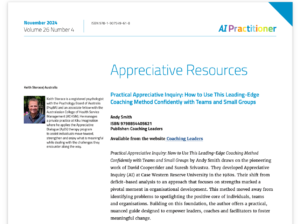How to recognize an offender? Me back to prison. | Ewakubin.com

[ad_1]
This time I was visiting an A category prison that was created for those whose escape would be highly dangerous to the public or national security. This particular jail was sometimes called the “British Guantanamo”.
On the first day it took us more than an hour to get to the classroom. I stopped counting the doors when I passed the door number twelve. There were many solid gates with big magnetic keys one after the other. They want to keep this place really safe. For a reason.
Before you can even pass through the first door, the officers take your fingerprints and you and all your belongings go through an “airport like” scanner. Officers check your ID and fingerprints several times during the day.
What is different to the first prison I worked in last time? This one seems to be newer, better organized and all staff are very polite and helpful.
The workshops went well. As usual the first day started slowly, but with time the engagement and interest of the participants grew exponentially. During this assignment six young men decided to work with us. Very pleasant number. Enough to have a lot of interesting interactions, but not too many not to be able to create rapport.
Usually when I start talking with someone about working in prison, the first question I get regards the inmates. Who stays in prison? Do inmates look strange? Have many tattoos? Crazy eyes? Behave aggressively?
First of all, I don’t care. Not that I do not take the risk seriously, but I am aware of the fact that these particular men that I am about to work with are going to be out very soon (usually in three to six months). That means that if you or me were to meet them outside, we would never wonder what past they have behind them. Even if they looked a bit strange.
However, and I will probably disappoint you, they look perfectly average. Your son could easy live in prison. Regardless on your ethnicity, you will not probably have a problem to find someone who pretty much matches you visually. Most of the men that I coach are Brits, often with roots in other countries, so they have various colors of skin, hair and eyes, but none of them look dangerous.
For example, this time I met a nice Polish boy. Eighteen years old, whole life in Britain, perfect English, handsome, clean and first of all intelligent, focused and calm. This one could easy be my son. Average, young white man.
So the visual side is not something that differs them from the men of their age that live outside.
The strange part is their approach to life. These boys are all about money, things, material world. The absolutely worst case scenario they can imagine is being poor. The idea that life could be more about being than having would probably be extremely difficult to accept for them. Most of them ended up in prison because they wanted to be rich, and hoped to have money immediately, this way or another.
What surprised me was that none of the inmates believe they are innocent. They are perfectly aware of their sins. If regretting? Not in the way we would think. More consider themselves silly for underrating risk.
One can assume that education, especially in terms of economic matters, math and law would be a very helpful factor for keeping them out of prison.
What also helps is getting more mature. At some point boys become men, grow up, notice the bad influencers, underestimation of risk and start to feel a need to try something new. They want to live different lives, but how?
The society doesn’t really care. Do you care? I doubt you spend too much time thinking about the penitentiary system. We all hope that somebody will take care of the problem. But nobody really does. For our own good we should do little more than to separate offenders from society and feed them. In my honest opinion it would be much effective and cheaper to work with prisoners and help them change their future, especially when they are young and still flexible.
And this is the area where we as coaches try to focus: helping young men overcome the threshold of change on their way back to freedom. We treat them as any other client of ours. Never judge them or ask for any explanation. They have already been convicted and are to serve their time in prison. Now it is time to help them to move on. Show these young men that life is full of opportunities and they can get what they want.
However, the price for staying out of prison is that everything comes gradually and after hard work. This is probably the most challenging fact our young coachees will have to face.
[ad_2]




